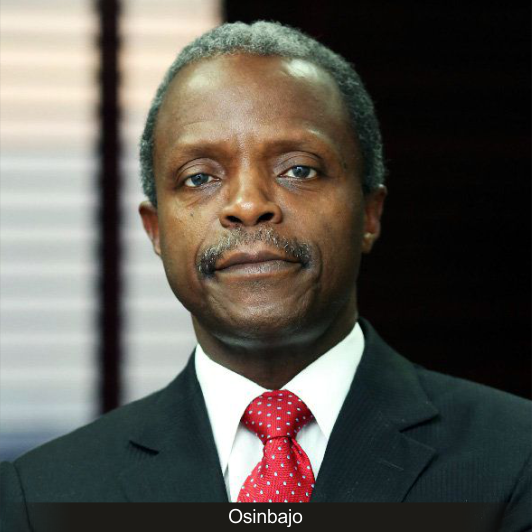The Vice President, Prof. Yemi Osinbajo, has said that quality and affordable healthcare are central to Nigeria’s socio-economic development.
The Vice President, this remark at the inauguration of the Health Sector Reform Committee recently.
Osinbajo noted that “a society is probably only as prosperous, developed and happy as its healthcare system which is central to any meaningful development planning. Consequently, there must be a plan to improve access to quality, reliable, functional and affordable healthcare for citizens”.
According to him, President Muhammadu Buhari had in several public statements, made it clear that a modern virile and people-centric healthcare system was fundamental to his vision for the socio-economic growth of Nigeria.
The Vice President said that “the current reality is that the Nigerian health sector still carries some critical challenges, which have resulted in sub-optimal outcomes, when compared especially with healthcare systems in more developed jurisdictions of the world”.
Osinbajo attributed the ugly development to a variety of factors, including fragmentation of health service delivery; insufficient healthcare financing; inadequate motivation/poor distribution of health workers; inadequate infrastructure /equipment and relatively low private sector participation.
He further noted that as a consequent of the unsavoury situation, these factors had caused significant revenue loss to the country due to growing medical tourism Justas Nigeria continued to lose Nigeria’s trained personnel to foreign countries.
Osinbajo, who is also the Chairman of the National Council on Privatisation (NCP), maintained that the government had the primary responsibility to address the issues and to put in place the structures and arrangements necessary to boost the efficiency of the healthcare ecosystem; improve healthcare delivery, stem the brain-drain of the country’s health personnel and reduce the pressure which Nigeria currently has on her foreign reserves on account of medical tourism.
The Vice President explained that it was for this reason that the government approved the establishment of the Health Reform Committee to commence the development and implementation of a wide-ranging Health Sector Reform Programme for the country.
He also recalled that there had been various attempts in the past to reform the healthcare system in Nigeria and that the present attempt began with the commissioning of a Diagnostic Needs Assessment (DNA) of the sector.
The Vice President said: “Subsequently, the National Council on Privatisation (NCP) at its meeting of April 12, 2019, approved the appointment of consultants to carry out the assignment, which involved a review of previous reform efforts in the sector, as well as field visits to 55 Tertiary Health Institutions across the country and some selected sub-regional health institutions.
“It is also important to mention that a series of stakeholder consultations were carried out with relevant Ministries, Departments and Agencies (MDAs), health unions and key stakeholders in the sector. The report of that comprehensive effort has brought us to where we are today”, Osinbajo stressed.
He further explained the Health Sector Reform Committee was tasked with the crucial role of reviewing the reports and steering the direction of the needed reforms.
While noting the multi-sectoral and multi-disciplinary participation required to execute the task, Osinbajo promised to bring aboard some of the important technical resource persons provided by the partners and proper representation from the Committee.






